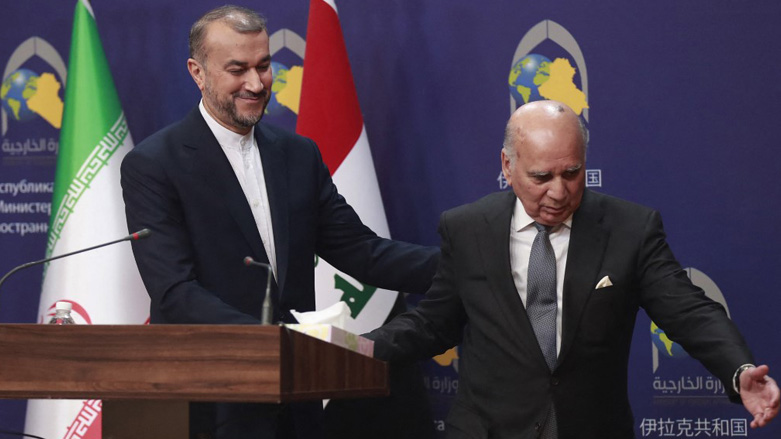Iraq mediates new rounds of talks between Iran and Saudi Arabia
Normalizing diplomatic relations between the countries depends on the results of the negotiations, according to Amir-Abdollahian,

ERBIL (Kurdistan 24) – Iran and Saudi Arabia are planning to hold new rounds of talks aimed at diffusing tensions, as part of Iraq’s mediation efforts between the two countries, Tehran’s chief diplomat said on Sunday.
The remarks by Iranian Minister of Foreign Affairs Hossein Amir-Abdollahian came during an interview aired on Sunday night with Al Alam TV, a state-owned Arabic news service.
“We are now planning a new round of negotiations,” the senior diplomat confirmed in the interview.
Normalizing diplomatic relations between the countries depends on the results of the negotiations, according to Amir-Abdollahian, adding “good progress” has been made in talks so far.
Iraqi Prime Minister Mohammad Shia’ Al-Sudani has recently said that Baghdad continues to “sustain” the “stalled” talks between the countries.
Riyadh recalled its Iran-based diplomats in 2016 after the Saudi embassy in Tehran and its consulate in Mashhad were set ablaze by protestors in reaction to the execution of the Shiite cleric Nimr al-Nimr by Saudi authorities.
Moreover, Saudi Arabia cut all trade relations with Iran and banned its citizens from visiting the country for religious pilgrimages.
Through proxies, Iran and Saudi Arabia have engaged in several indirect conflicts over the past decade, including in Yemen and Lebanon.
In 2019, Saudi Arabia’s critical oil processing installations in the east were targeted by kamikaze drones, claimed by the Iran-backed Houthi militias in Yemen. The strikes suspended over half of the nation’s 12 million barrels of daily oil production output.